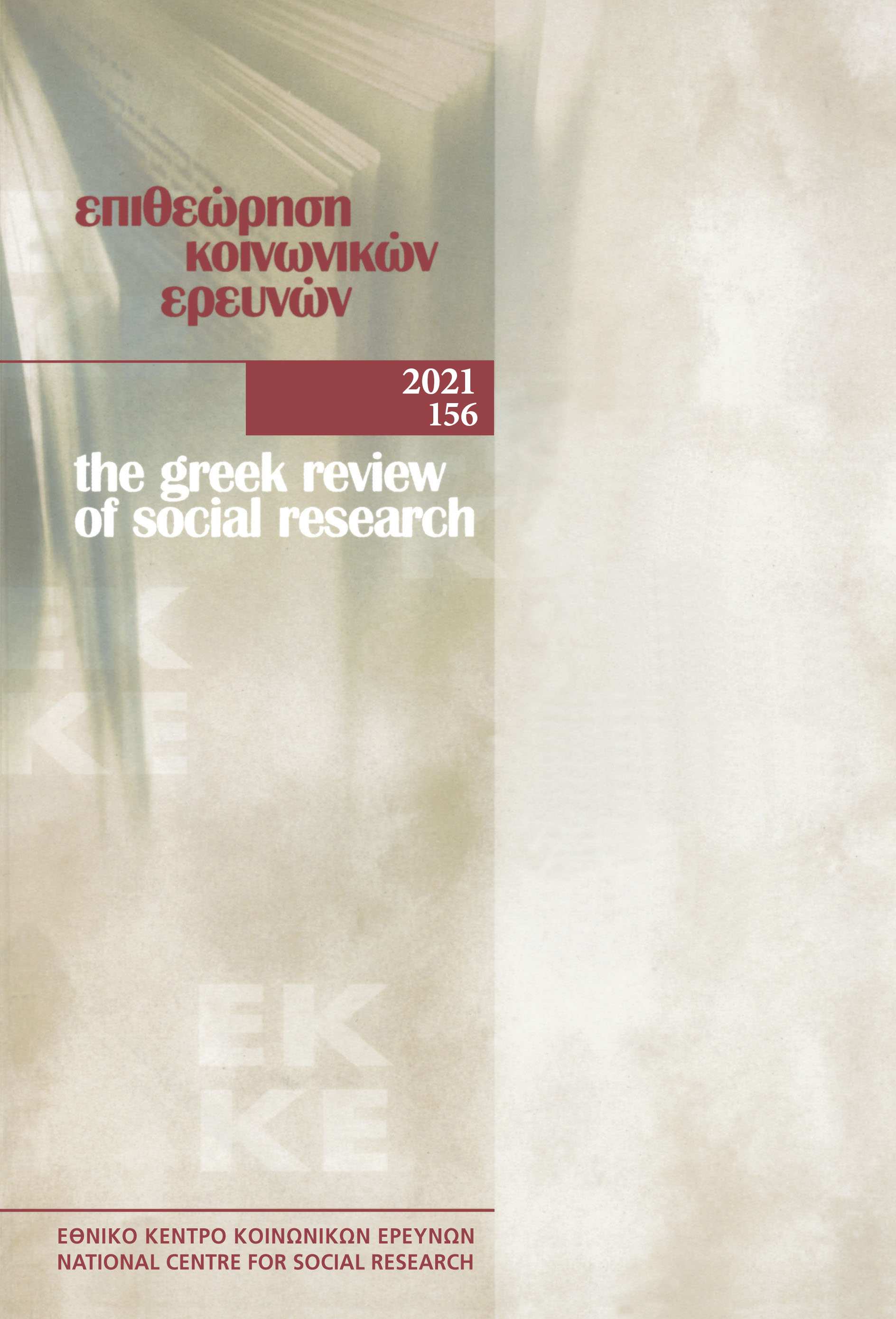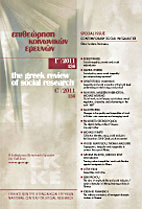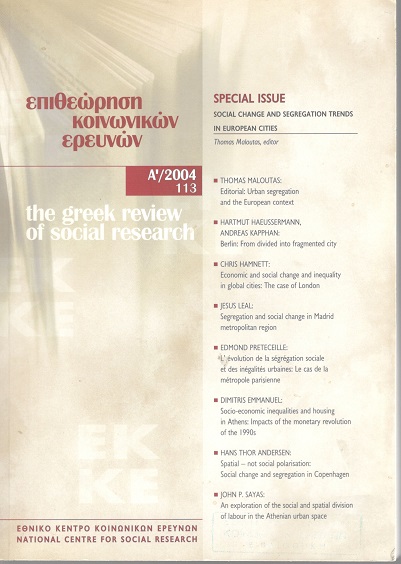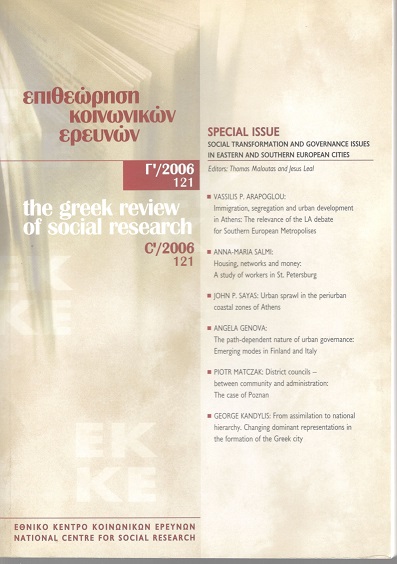Diversity. A critical approach

Περίληψη
Σε αυτό το κείμενο ο όρος «ετερότητα» εξετάζεται κάτω από τέσσερις διαφορετικές οπτικές γωνίες. Η πρώτη την τοποθετεί σε μια γενεαλογία επιστημονικών και πολιτικών εννοιολογικών εργαλείων τα οποία περιγράφουν και αποτιμούν τις κοινωνίες των σύγχρονων πόλεων και επισημαίνει ότι η χρησιμοποίηση της έννοιας «ετερότητα» σηματοδοτεί ένα ακόμη βήμα απομάκρυνσης από εξισωτικούς λόγους και πολιτικές. Η δεύτερη διερευνά τη σχέση μεταξύ ετερότητας και ανισότητας, εμπνευσμένη από τις επεξεργασίες του François Dubet (2010) όσον αφορά τη σχέση μεταξύ άνισων ταξικών θέσεων και άνισων ευκαιριών. Στο πλαίσιο της τρίτης οπτικής συζητείται η σχέση μεταξύ ετερότητας και χωρικής κινητικότητας, με επικέντρωση στην εμποδιζόμενη κινητικότητα της εργασίας, την οποία νομιμοποιεί κυρίως η ουσιοκρατική αντίληψη της ατομικής ετερότητας. Η τέταρτη και τελευταία οπτική γωνία αφορά σε ένα σχόλιο για τη σχέση ετερότητας και δημοκρατίας, το οποίο επικεντρώνεται στο ότι η αυξημένη χρήση του όρου «ετερότητα» στον πολιτικό λόγο συμβαδίζει όλο και περισσότερο με τον περιορισμό της δημοκρατίας όσον αφορά τις ουσιαστικές επιλογές, αλλά και τον περιορισμό εκείνων των πολιτικών δικαιωμάτων που κυρίως ενσαρκώνουν αυτή την ετερότητα. Συνολικά, το κείμενο τονίζει την αμφίσημη σχέση μεταξύ πολιτικών και λόγων που προωθούν την ετερότητα, από τη μια πλευρά, και προγραμμάτων για περιορισμό των κοινωνικών ανισοτήτων, από την άλλη, όταν τα δικαιώματα των ομάδων στις οποίες αναφέρεται η ετερότητα βασίζονται σε παγιωμένες ταυτότητες και σε ουσιοκρατικά αντιληπτές διαφορές.
Λεπτομέρειες άρθρου
- Πώς να δημιουργήσετε Αναφορές
-
Maloutas, T. (2021). Diversity. A critical approach. Επιθεώρηση Κοινωνικών Ερευνών, 156, 31–54. https://doi.org/10.12681/grsr.25942
- Τεύχος
- 2021: 156
- Ενότητα
- Άρθρα

Αυτή η εργασία είναι αδειοδοτημένη υπό το CC Αναφορά Δημιουργού – Μη Εμπορική Χρήση 4.0.
Οι συγγραφείς των άρθρων που δημοσιεύονται στην Επιθεώρηση Κοινωνικών Ερευνών διατηρούν τα δικαιώματα πνευματικής ιδιοκτησίας επί των άρθρων τους, δίνοντας στο περιοδικό το δικαίωμα της πρώτης δημοσίευσης. Άρθρα που δημοσιεύονται στην Επιθεώρηση Κοινωνικών Ερευνών διατίθενται με άδεια Creative Commons 4.0 και σύμφωνα με την άδεια μπορούν να χρησιμοποιούνται ελεύθερα, με αναφορά στο/στη συγγραφέα και στην πρώτη δημοσίευση για μη κερδοσκοπικούς σκοπούς.
Το Εθνικό Κέντρο Κοινωνικών Ερευνών διατηρεί το δικαίωμα να δημοσιεύει, να αναπαραγάγει, να παρουσιάζει στο κοινό, να διανέμει και χρησιμοποιεί άρθρα που δημοσιεύονται στην Επιθεώρηση Κοινωνικών Ερευνών σε οποιοδήποτε μέσο και μορφή είτε μεμονωμένα είτε ως μέρη συλλογικών έργων, για όλο τον χρόνο διάρκειας προστασίας της πνευματικής ιδιοκτησίας και για όλες τις χώρες του κόσμου. Αυτό περιλαμβάνει ενδεικτικά και όχι αποκλειστικά το δικαίωμα δημοσίευσης των άρθρων σε τεύχη της Επιθεώρησης Κοινωνικών Ερευνών, αναπαραγωγής και διανομής μεμονωμένων αντιγράφων των άρθρων, αναπαραγωγής ολόκληρων των άρθρων σε άλλη έκδοση του Εθνικού Κέντρου Κοινωνικών Ερευνών, καθώς και αναπαραγωγής και διανομής των άρθρων ή περίληψης αυτών με χρήση πληροφορικού συστήματος αποθετηρίου.





